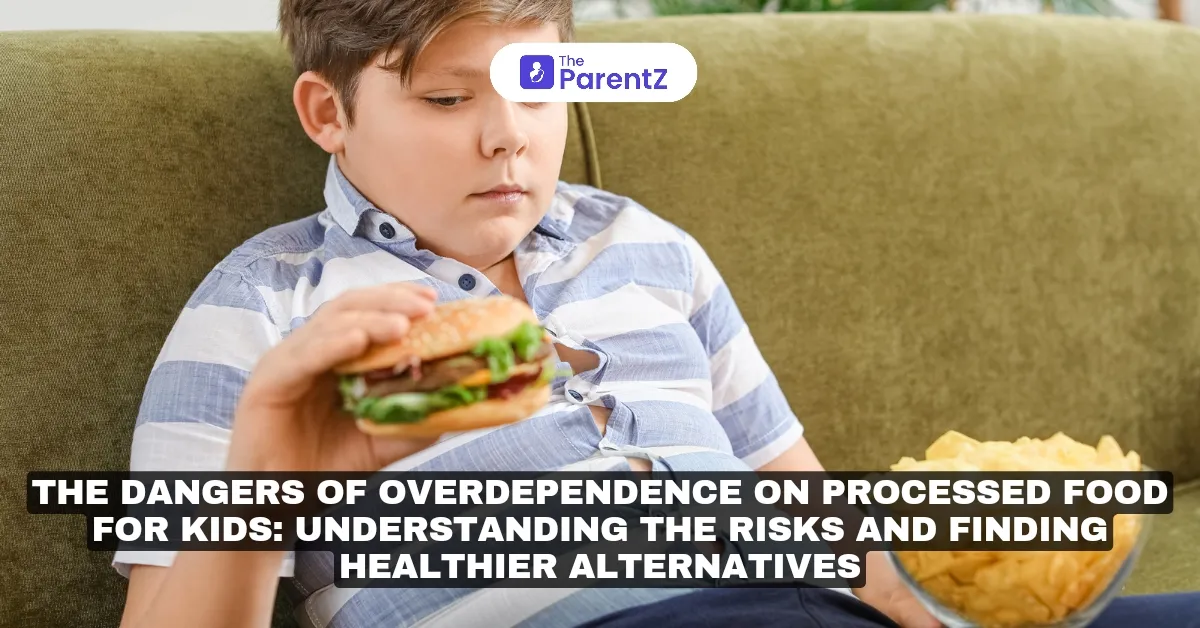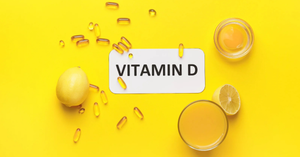In today’s fast-paced world, processed foods have become a staple in many households, especially when it comes to feeding children. These convenient, ready-to-eat options often seem like a lifesaver for busy parents. However, the overdependence on processed foods poses significant risks to children's health. This article delves into the common problems associated with the overconsumption of processed foods by kids, explores the harmful chemicals often found in these products, and offers healthier alternatives for concerned parents.
What Are Processed Foods?
Processed foods are items that have been altered from their natural state for safety reasons or convenience. This includes everything from canned vegetables to sugary cereals and microwaveable meals. The processing methods can involve freezing, canning, baking, drying, and the addition of preservatives, flavorings, and other additives. While some processing can make food safer and more convenient, overreliance on heavily processed foods can be detrimental, especially for children.
The Health Risks of Processed Foods for Kids
The regular consumption of processed foods can have several adverse effects on children's health. These foods are often high in unhealthy ingredients and lack essential nutrients, contributing to various physical and mental health issues.
Obesity and Weight Gain
One of the most significant risks associated with processed foods is obesity. These foods are typically high in calories, sugars, and unhealthy fats, all of which contribute to weight gain. For instance, a typical serving of potato chips contains not only high levels of sodium but also trans fats and artificial flavors, which are linked to increased calorie intake and weight gain.
Nutritional Deficiencies
Processed foods often lack essential nutrients that are crucial for a child's growth and development. Vitamins, minerals, and fiber found in whole foods are often stripped away during processing. For example, refined grains lose a significant portion of their fiber and nutrients compared to their whole grain counterparts, leading to deficiencies that can affect cognitive and physical development.
Increased Risk of Chronic Diseases
Long-term consumption of processed foods is linked to an increased risk of chronic diseases such as type 2 diabetes, cardiovascular disease, and certain cancers. The high sugar content in many processed foods can lead to insulin resistance, while excessive sodium intake is associated with hypertension.
Harmful Chemicals in Processed Foods
Processed foods often contain a variety of additives and chemicals to enhance flavor, texture, shelf life, and appearance. While these additives are generally recognized as safe by regulatory agencies, their long-term effects, especially on children, are still a cause for concern.
Artificial Sweeteners and High-Fructose Corn Syrup (HFCS)
Artificial sweeteners like aspartame and saccharin, as well as high-fructose corn syrup, are commonly used in processed foods to reduce costs and enhance sweetness without adding calories. However, these sweeteners have been linked to metabolic disorders, insulin resistance, and even behavioral issues in children. HFCS, in particular, is associated with obesity and metabolic syndrome.
Preservatives
Preservatives such as sodium benzoate, nitrates, and nitrites are used to extend the shelf life of processed foods. These chemicals can interfere with metabolic processes and have been linked to an increased risk of cancer. For example, nitrates and nitrites, found in processed meats like hot dogs and lunch meats, can form nitrosamines in the body, which are known carcinogens.
Artificial Colors and Flavors
Many processed foods contain artificial colors and flavors to make them more appealing to children. Chemicals like tartrazine (Yellow No. 5) and allura red (Red No. 40) have been associated with hyperactivity and behavioral issues in children. The long-term consumption of these additives can also lead to allergic reactions and other health problems.
Trans Fats and Hydrogenated Oils
Trans fats, found in many baked goods and fried foods, are created through the hydrogenation of vegetable oils. These fats are linked to increased LDL cholesterol levels (bad cholesterol) and decreased HDL cholesterol levels (good cholesterol), leading to a higher risk of cardiovascular diseases. Children consuming high levels of trans fats are at a greater risk of developing heart disease later in life.
The Impact on Mental Health and Cognitive Development
Beyond physical health, processed foods can also negatively impact mental health and cognitive development. Diets high in processed foods have been linked to mood swings, anxiety, and depression in children. The lack of essential nutrients like omega-3 fatty acids, which are crucial for brain health, can impair cognitive functions and academic performance.
Healthier Alternatives to Processed Foods
While the convenience of processed foods can be hard to resist, there are healthier alternatives that can provide better nutrition without the harmful additives. Here are some practical suggestions for parents:
Fresh Fruits and Vegetables
Incorporating more fresh fruits and vegetables into your child's diet is one of the best ways to ensure they receive essential vitamins and minerals. Fresh produce can be served as snacks, in salads, or as part of main meals.
Whole Grains
Choose whole grains over refined grains. Whole grains like brown rice, quinoa, and whole wheat bread retain more nutrients and fiber, promoting better digestion and sustained energy levels.
Lean Proteins
Opt for lean proteins such as chicken, turkey, fish, beans, and legumes. These provide essential amino acids necessary for growth and development without the added fats and preservatives found in processed meats.
Homemade Meals
Preparing meals at home allows you to control the ingredients and avoid harmful additives. Simple, homemade dishes can be just as quick and convenient with a bit of planning. Batch cooking and meal prepping can save time and ensure your child eats nutritious meals throughout the week.
Natural Sweeteners
Instead of sugary snacks and desserts, use natural sweeteners like honey, maple syrup, or fruits. These provide sweetness without the negative health impacts associated with artificial sweeteners and high-fructose corn syrup.
Conclusion
The overdependence on processed foods for children is a growing concern that can have lasting impacts on their health and well-being. From physical health issues like obesity and chronic diseases to mental health challenges and cognitive impairments, the risks associated with processed foods are substantial. By understanding these risks and making conscious choices to incorporate healthier, whole foods into your child's diet, you can help foster better long-term health outcomes. Prioritizing fresh, nutrient-rich foods over processed alternatives is an investment in your child's future, ensuring they grow up healthy, strong, and ready to face the world.








Be the first one to comment on this story.